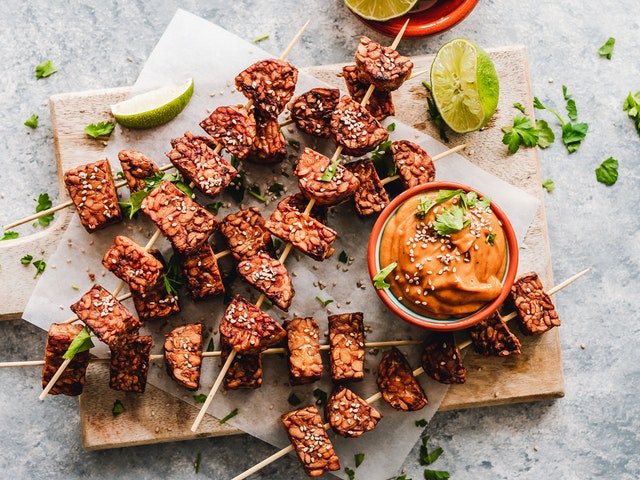In the ever-evolving world of body art, tools and technology play a vital role in the precision, comfort, and artistry of tattooing. Over the past few decades, one innovation has reshaped the tattoo industry: the rotary tattoo machine. This dynamic tool has swiftly grown in popularity among artists and enthusiasts alike due to its unmatched consistency, reduced noise, and versatility.
Whether you’re a seasoned tattoo artist or a novice exploring the realm of ink, understanding the mechanics and advantages of the rotary machine can significantly enhance your craft. In this in-depth guide, we explore the evolution, benefits, comparisons, and expert insights related to rotary tattoo machines, helping you make an informed decision about your tattooing toolkit.
The Evolution of Tattoo Machines
The concept of mechanical tattooing dates back to the late 1800s, with the first patent filed by Samuel O’Reilly in 1891. His design was based on Thomas Edison’s electric pen, creating the first coil machine. For decades, the coil machine was the industry standard, revered for its power and precision.
However, as technology and artistic expectations grew, so did the demand for a more refined and versatile machine. Enter the rotary tattoo machine—a game-changer that replaced the traditional electromagnetic coil with a quieter, smoother rotary motor. This development was pivotal, offering artists a new way to work with enhanced control and minimal vibration.
What Is a Rotary Tattoo Machine?
A rotary tattoo machine is a type of tattooing device that uses a small motor to drive the needles in a cyclic motion. Unlike coil machines, which rely on electromagnetic currents to move the needle, rotary machines provide consistent motion and smoother operation.
The core components of a rotary machine include:
- Motor: Powers the device and controls the needle’s motion.
- Cam Wheel: Converts rotary motion into linear movement.
- Needle Bar: Transfers the movement from the motor to the needle.
This streamlined mechanism is what sets the rotary tattoo machine apart. Its simplicity in design also makes it easier to maintain, a benefit that cannot be overstated in busy tattoo studios.
Why Tattoo Artists Prefer the Rotary Tattoo Machine
Tattoo professionals often debate between coil and rotary machines, but many are turning to rotary tattoo machines for their distinct advantages. Here are some compelling reasons:
1. Quieter Operation
One of the first things you’ll notice with a rotary tattoo machine is its near-silent performance. This is not only less intimidating for clients but also creates a more relaxed working environment for artists. The hum of a rotary machine is far more pleasant than the loud buzz of a coil machine.
2. Lightweight and Ergonomic
Most rotary tattoo machines are built with lightweight materials, making them easier to handle during long sessions. Reduced hand fatigue means better precision and happier clients.
3. Versatility
A single rotary tattoo machine can be used for lining, shading, and coloring, making it an all-in-one solution. Unlike coil machines, which often require separate devices for different tasks, rotary machines are adaptable and efficient.
4. Minimal Maintenance
With fewer parts and a more straightforward mechanism, rotary machines require less upkeep. This translates to fewer breakdowns and a longer lifespan—both critical for professionals who rely on their equipment daily.
Choosing the Right Rotary Tattoo Machine
With many models and brands flooding the market, selecting the right rotary tattoo machine can feel overwhelming. Here are some key factors to consider:
– Motor Quality
Opt for a machine with a high-torque, durable motor. A quality motor ensures smooth needle movement and consistent power delivery.
– Stroke Length
Stroke length affects the depth and speed of the needle’s movement. For general use, a stroke length of 3.5mm is a solid choice, but specific styles may require adjustments.
– Ergonomics
Look for a design that feels comfortable in your hand. The shape and weight distribution can greatly impact your control and endurance.
– Compatibility
Ensure the machine is compatible with your preferred needle cartridges and grips. This versatility allows for customization and better control.
Brands like Inkclaw are gaining popularity for offering premium rotary tattoo machines that combine top-tier engineering with artistic sensibility. Their products are built with the artist’s needs in mind, delivering reliable performance session after session.
Comparing Rotary Machines vs. Coil Machines
Understanding the differences between these two types of machines can help artists determine which tool best suits their style.
| Feature | Rotary Machine | Coil Machine |
|---|---|---|
| Noise | Quiet | Loud buzzing |
| Weight | Lightweight | Generally heavier |
| Versatility | All-in-one use (lining, shading, coloring) | Usually one purpose per machine |
| Maintenance | Low | Requires more upkeep |
| Learning Curve | Easier for beginners | Steeper learning curve |
| Performance | Smooth, consistent | Punchy, with potential for variability |
While both machines have their strengths, the rotary tattoo machine shines in settings where comfort, precision, and simplicity are priorities.
Ideal Tattoo Styles for a Rotary Tattoo Machine
Because of their smooth, consistent motion and adaptability, rotary machines are ideal for a variety of tattoo styles, including:
- Realism: The smooth shading capabilities allow for nuanced gradations and fine details.
- Black and Grey: Artists can achieve soft gradients effortlessly.
- Color Packing: With the right needle configuration, rotary machines can saturate colors efficiently.
- Line Work: While once dominated by coil machines, modern rotary tattoo machines can now deliver crisp, clean lines.
Myths About the Rotary Tattoo Machine
Despite their growing popularity, several myths about rotary machines persist:
Myth 1: Rotary machines aren’t powerful enough for lining.
False. With advancements in motor design, many rotary tattoo machines are more than capable of delivering strong, consistent lines.
Myth 2: They can’t handle long sessions.
Incorrect. Most modern rotary machines are built for durability and can easily manage extended tattooing sessions with minimal overheating.
Myth 3: Coil machines are always better.
Not necessarily. While some artists still prefer the punch of a coil machine, many are transitioning to rotary tattoo machines for their ease of use and precision.
Maintaining Your Rotary Tattoo Machine
Proper care is key to ensuring longevity and performance. Here are some maintenance tips:
- Clean after every session: Use a disinfectant to sanitize all components that come into contact with skin or ink.
- Lubricate moving parts: Depending on your model, some components may require occasional oiling.
- Check the motor and wiring: Look for wear and tear that could impact performance.
A well-maintained rotary machine can serve you reliably for years, making it a smart investment.
Industry Testimonials
Many professional artists now endorse rotary tattoo machines as their go-to equipment. Here’s what some have to say:
“Switching to a rotary tattoo machine changed the way I work. It’s quiet, consistent, and less stressful on my hands.” – Alex R., Tattoo Artist (NYC)
“I love the versatility. Whether I’m doing bold lines or delicate shading, my rotary machine handles it all.” – Maria T., Tattooist (LA)
Final Thoughts: The Future of Tattooing with Rotary Tattoo Machines
As the tattoo industry continues to grow, so does the demand for more advanced, efficient tools. The rotary tattoo machine is not just a trend—it’s a testament to innovation in an art form that constantly evolves. With benefits like smooth operation, low maintenance, and all-in-one functionality, it’s clear why more artists are making the switch.
Brands like Inkclaw are leading the charge in designing premium rotary tattoo machines that meet the needs of modern artists without compromising on tradition or quality.
If you’re looking to elevate your craft, improve client satisfaction, and reduce strain during sessions, investing in a high-quality rotary machine might just be the best move for your career.


